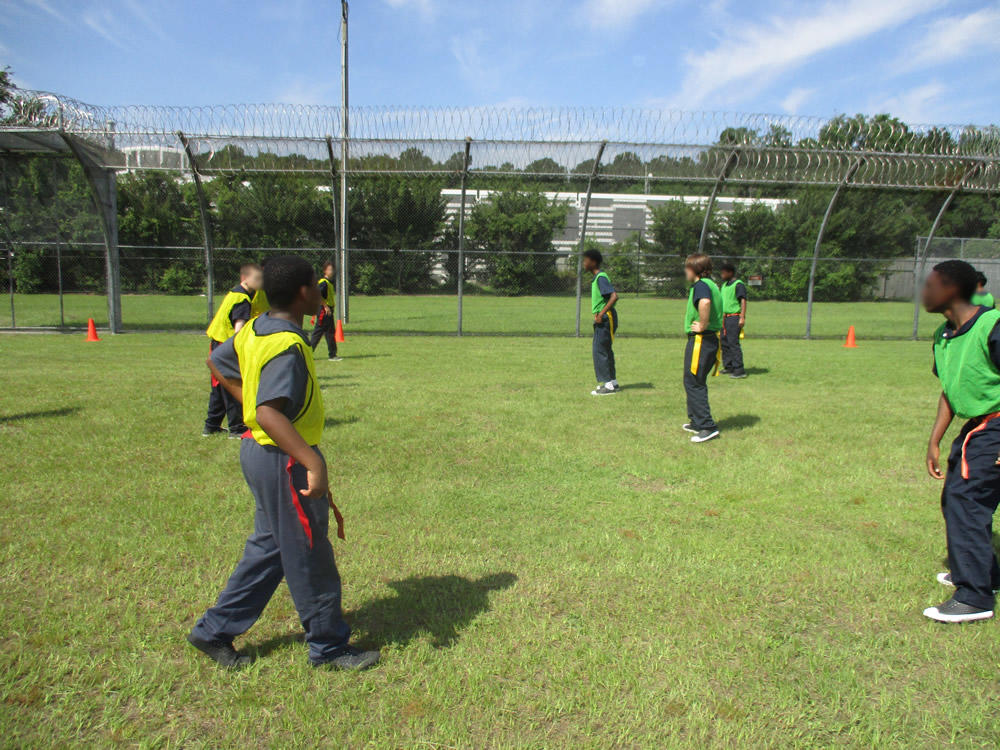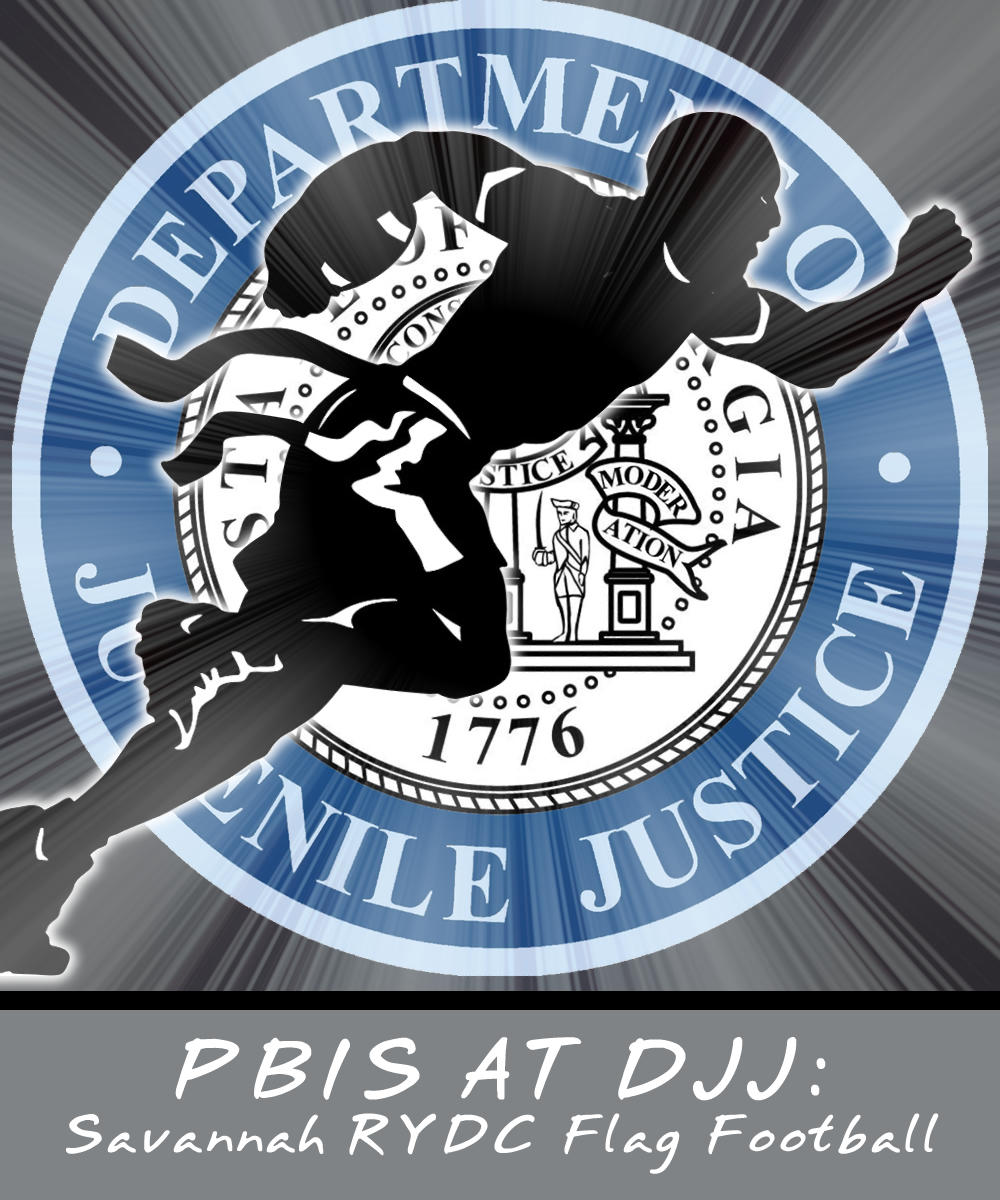
July 24, 2018
PBIS at DJJ: Savannah RYDC Flag Football

Story support and photos from Savannah RYDC Recreation Supervisor Brianna Brooker
When you’re a kid in Georgia, every day is a great day for football. And youth in custody at the Department of Juvenile Justice are no different than any other kids around the state when they have a chance to play the game with friends. Some youth at the Savannah Regional Youth Detention Center (RYDC) were recently rewarded with participation in a special Flag Football Tournament for their successful results from the DJJ Positive Behavioral Interventions and Supports (PBIS) program.
The PBIS behavioral management program makes it possible for youth who are incident-free and have no cool-off periods, and no special incident reports or redirections for a significant period of time, to be rewarded with access to PBIS incentive events during the year like flag football tournaments at the secure facility.
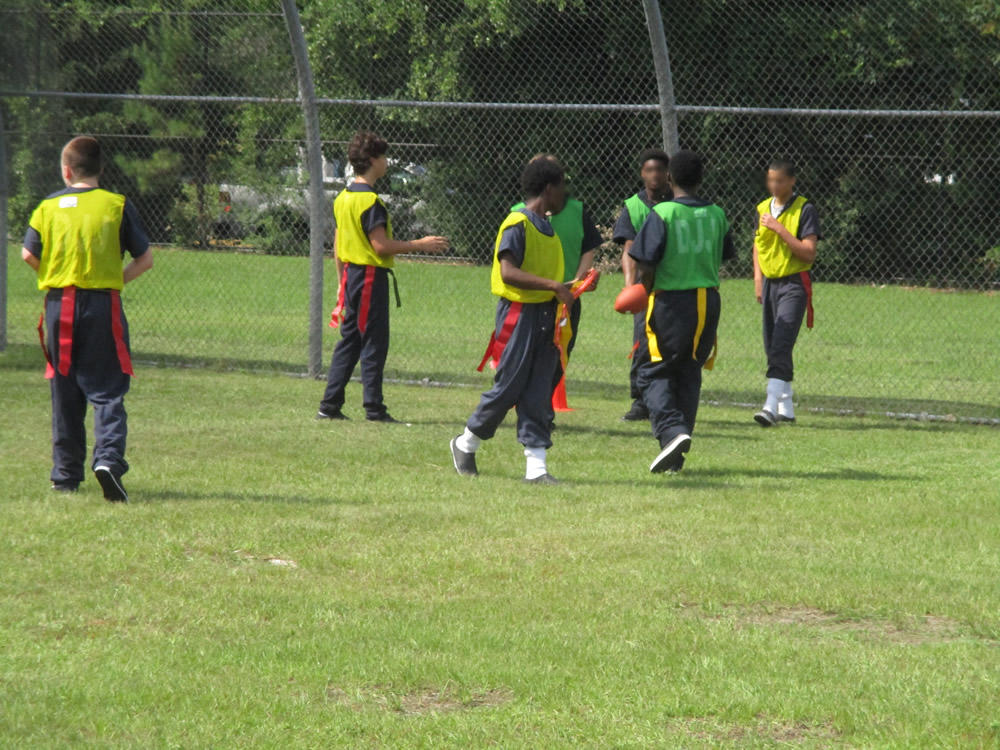
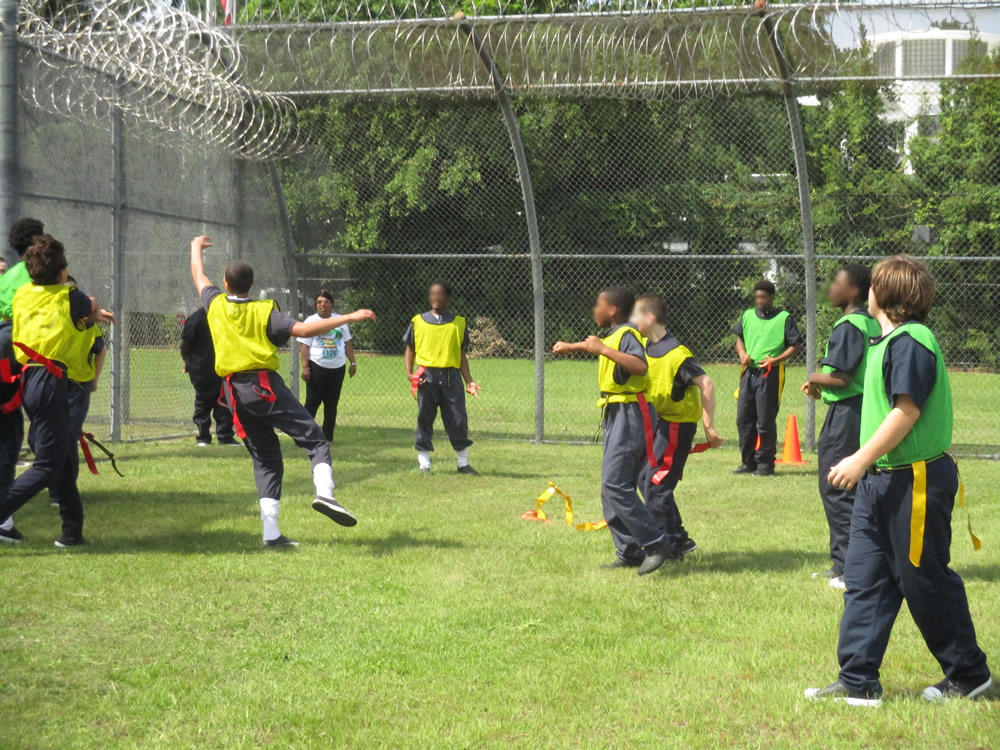
The Savannah RYDC Flag Football Tournament was highly competitive from start to finish. Teams consisted of six Savannah RYDC players and each unit of the facility was allowed to have multiple teams. Teams were placed in double elimination bracketed at random and after an afternoon of intense play, the winning team received an additional two hours in the facility recreation room.
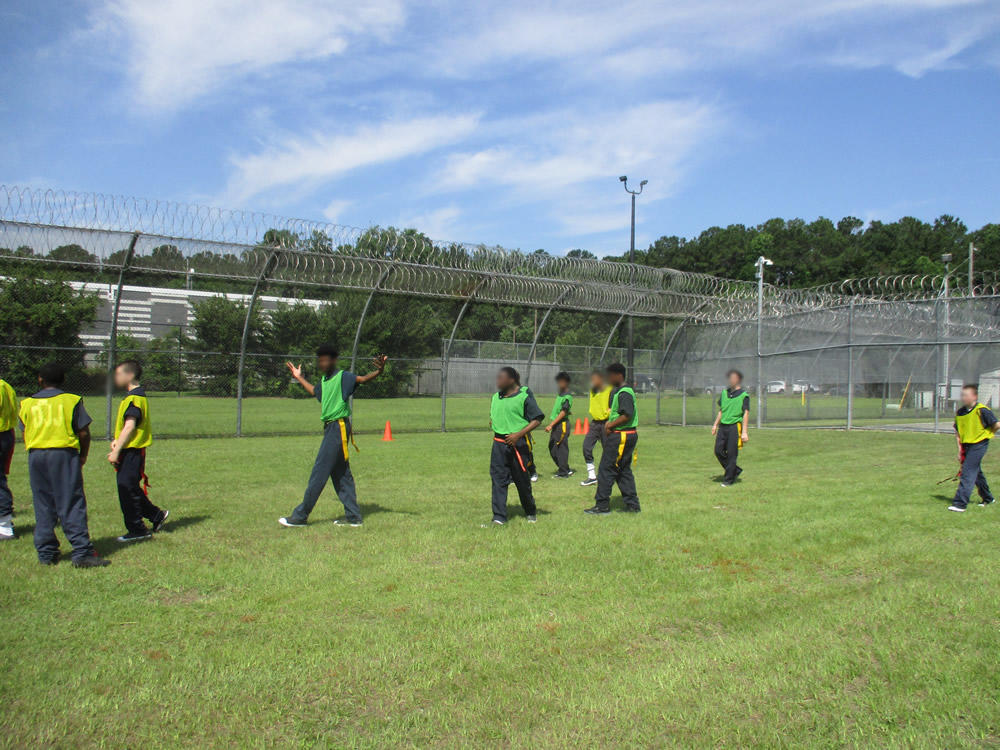
PBIS is an evidence-based, data-driven framework proven to reduce disciplinary incidents, increase a school’s sense of safety and support improved academic outcomes. More than 23,000 U.S. schools are implementing PBIS and saving countless instructional hours otherwise lost to discipline. The premise of PBIS is that continual teaching, combined with acknowledgement or feedback of positive student over-the-counter behavior, will reduce unnecessary discipline and promote an environment of greater productivity, safety and learning.
PBIS schools like the one at Savannah RYDC apply a multi-tiered approach to prevention, using disciplinary data and principles of behavior analysis to develop school-wide, targeted and individualized interventions and supports to improve the school climate for all students.
